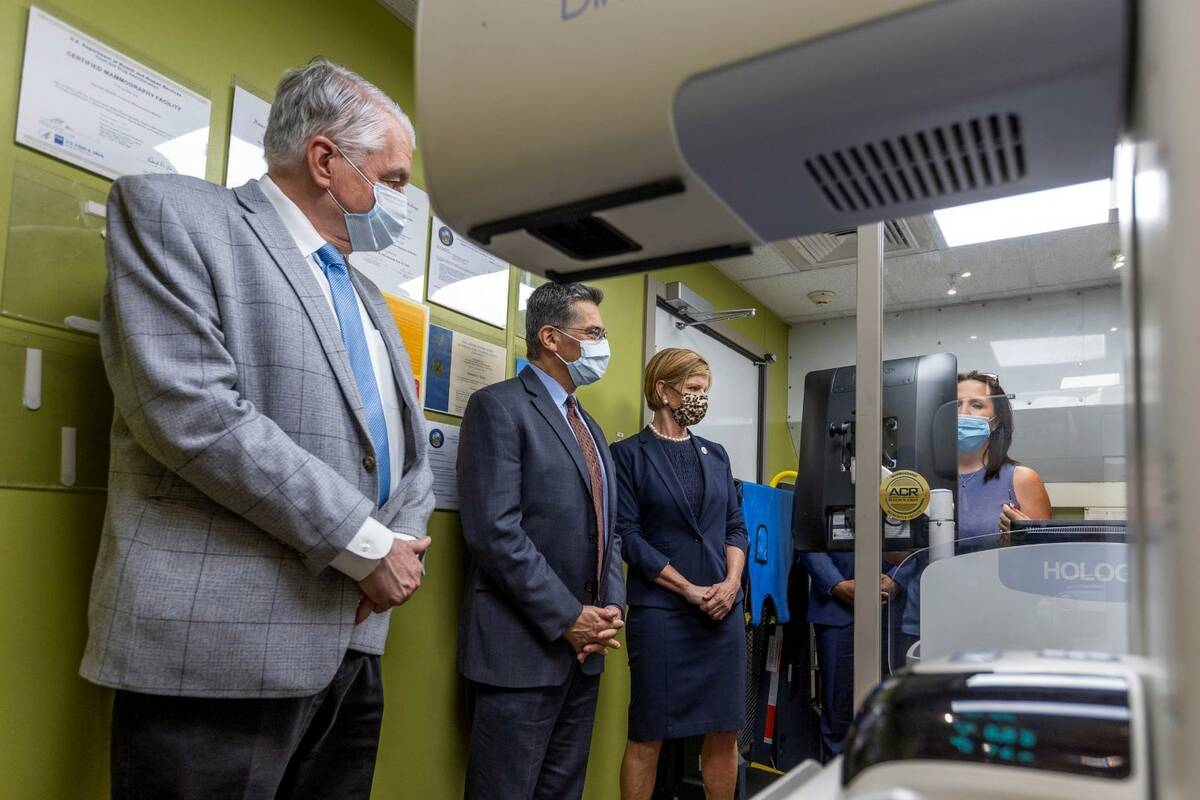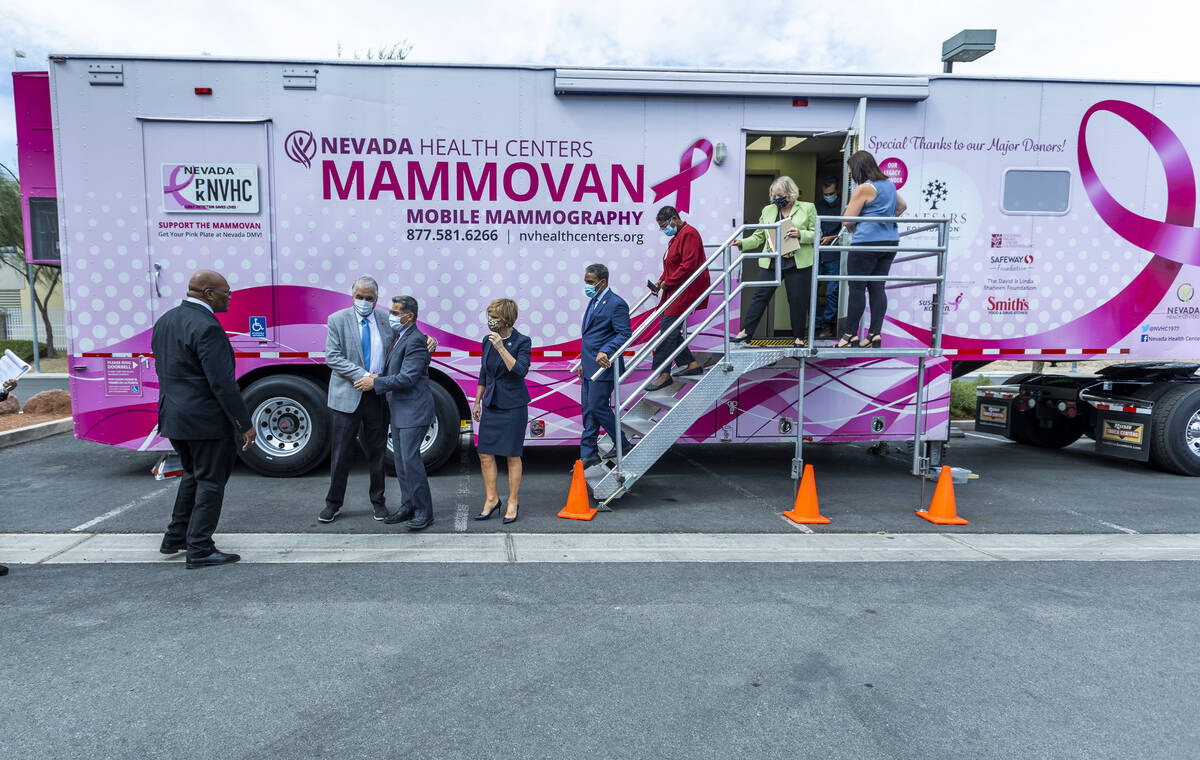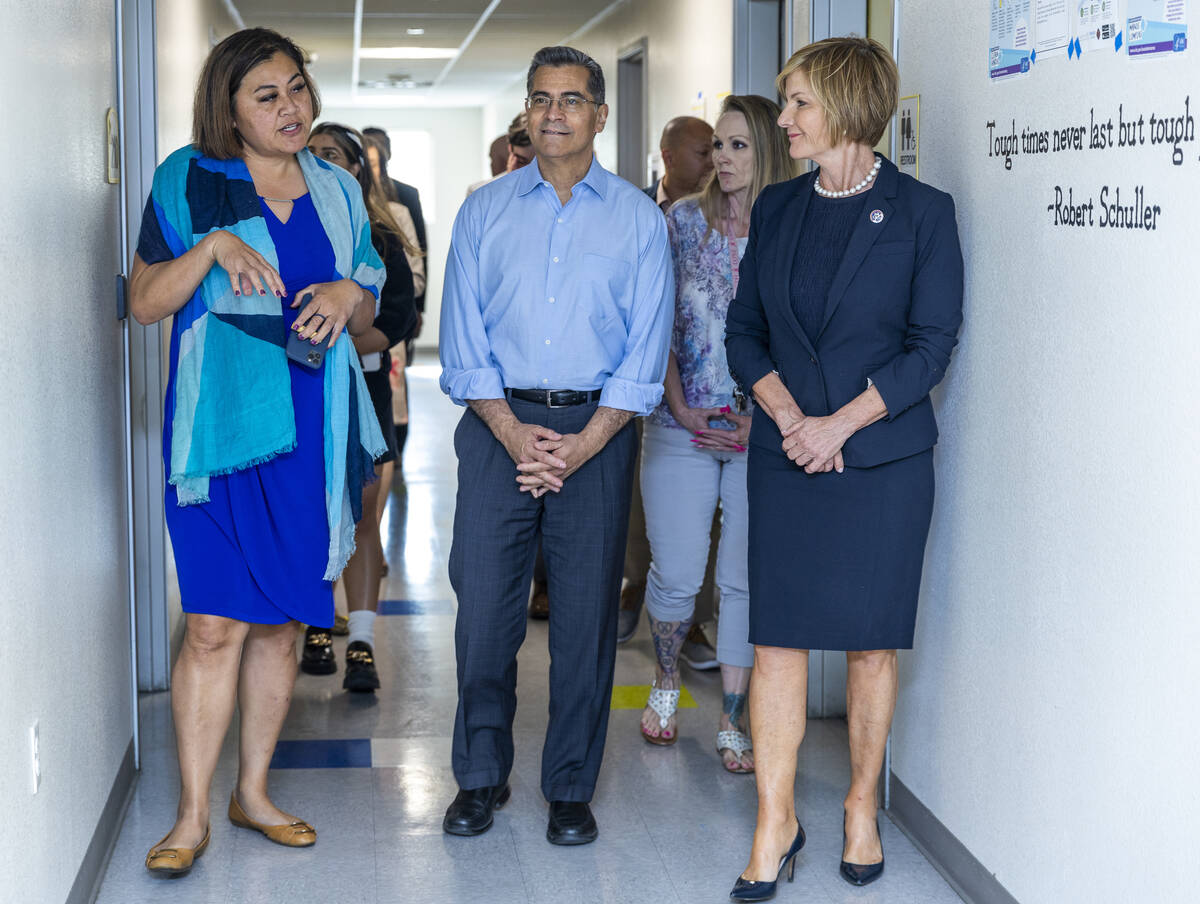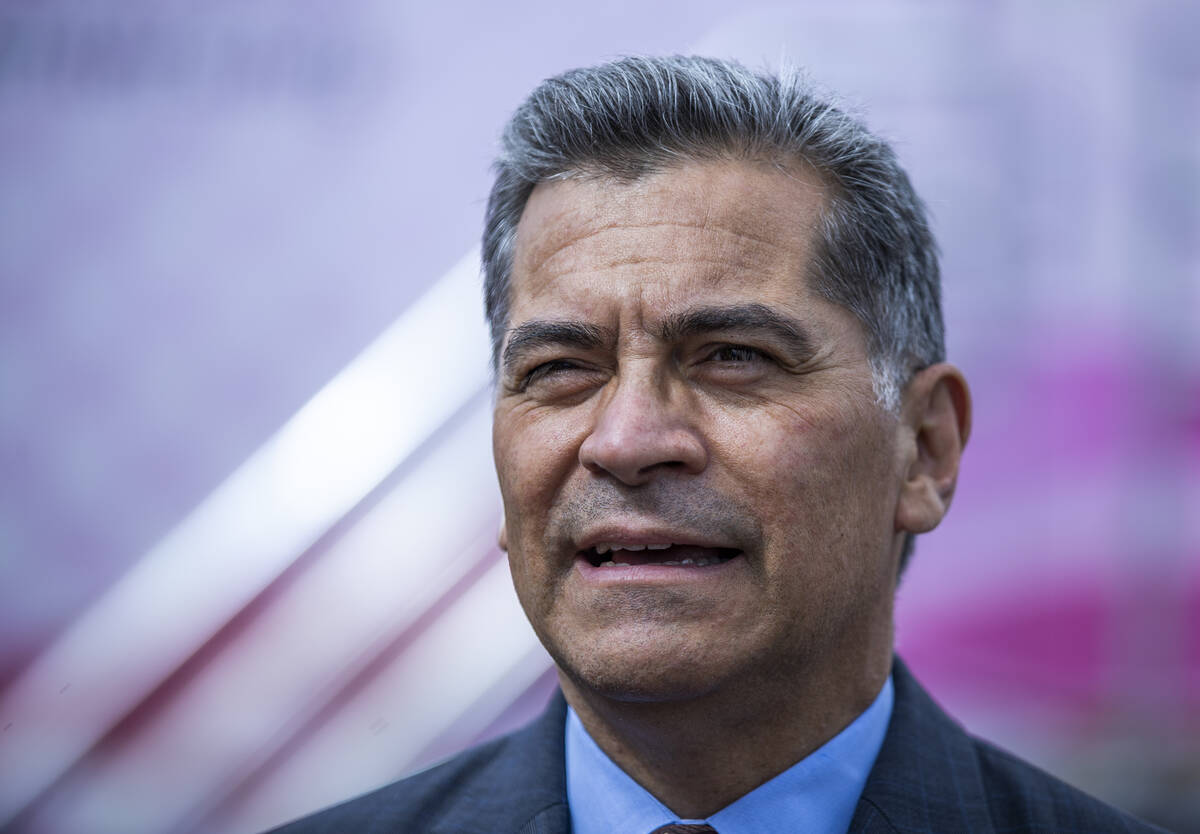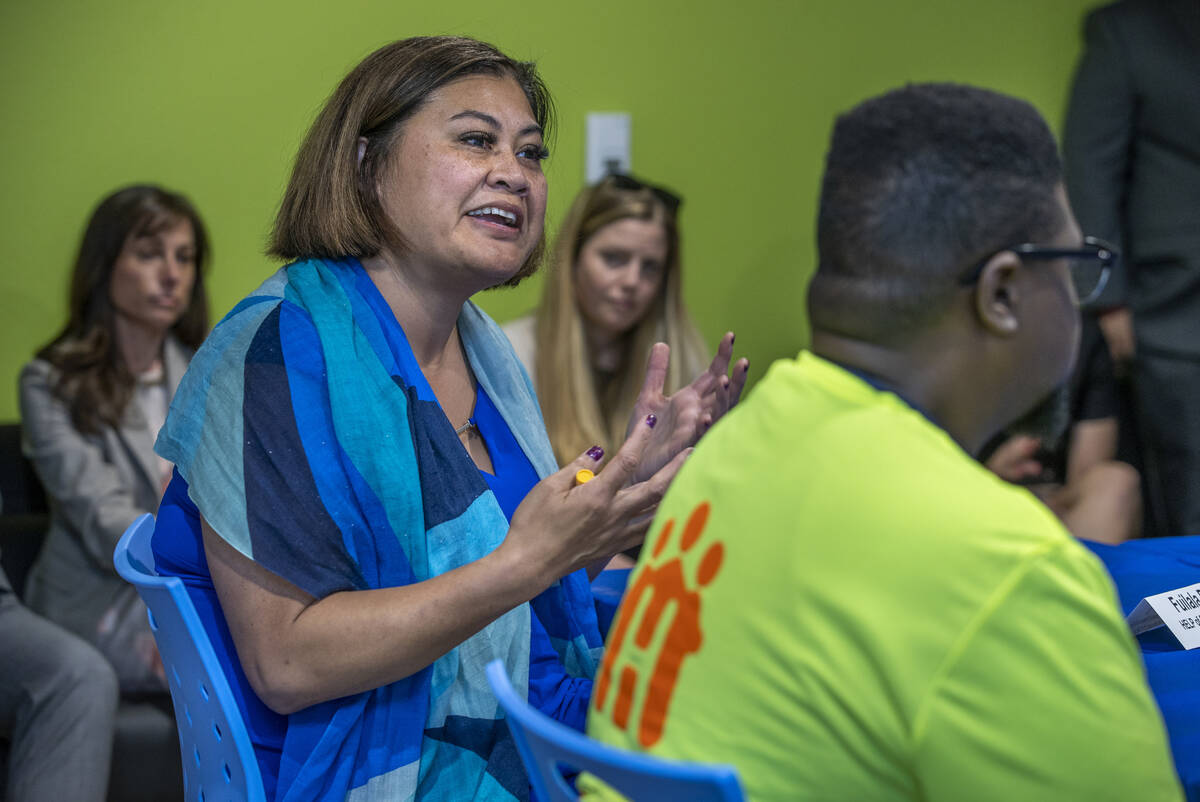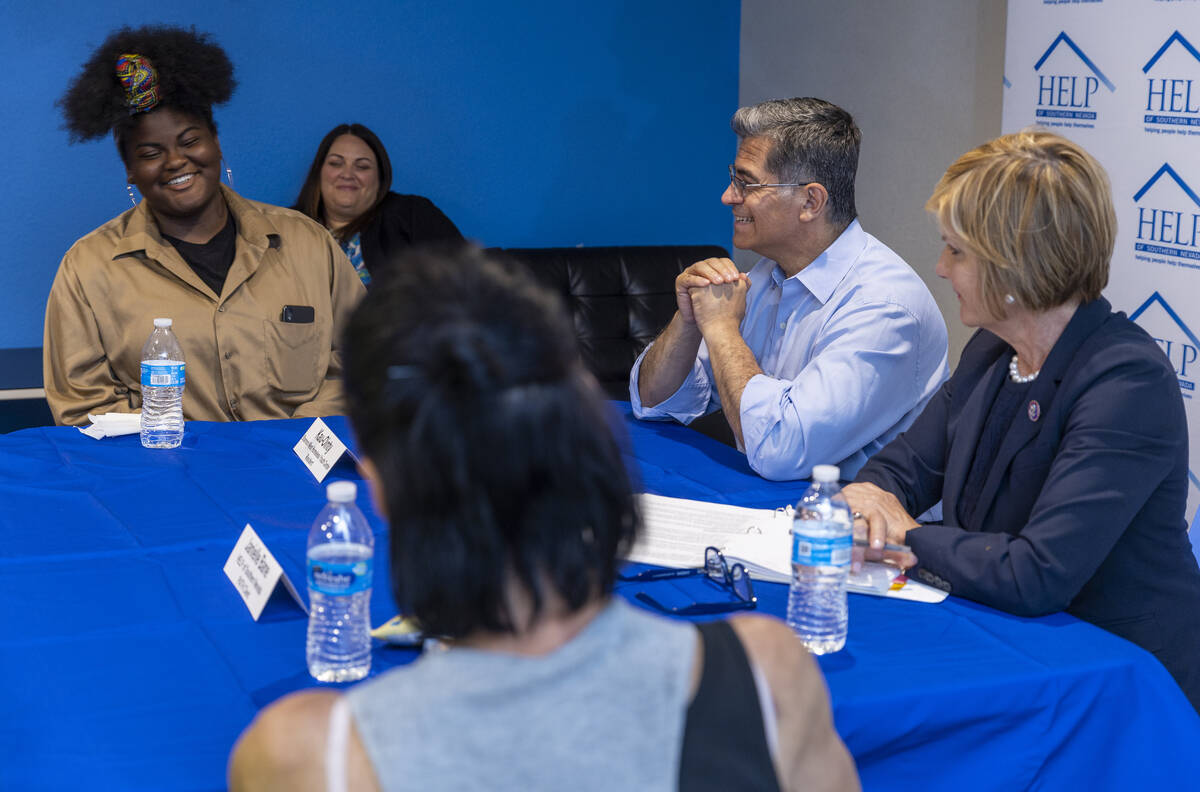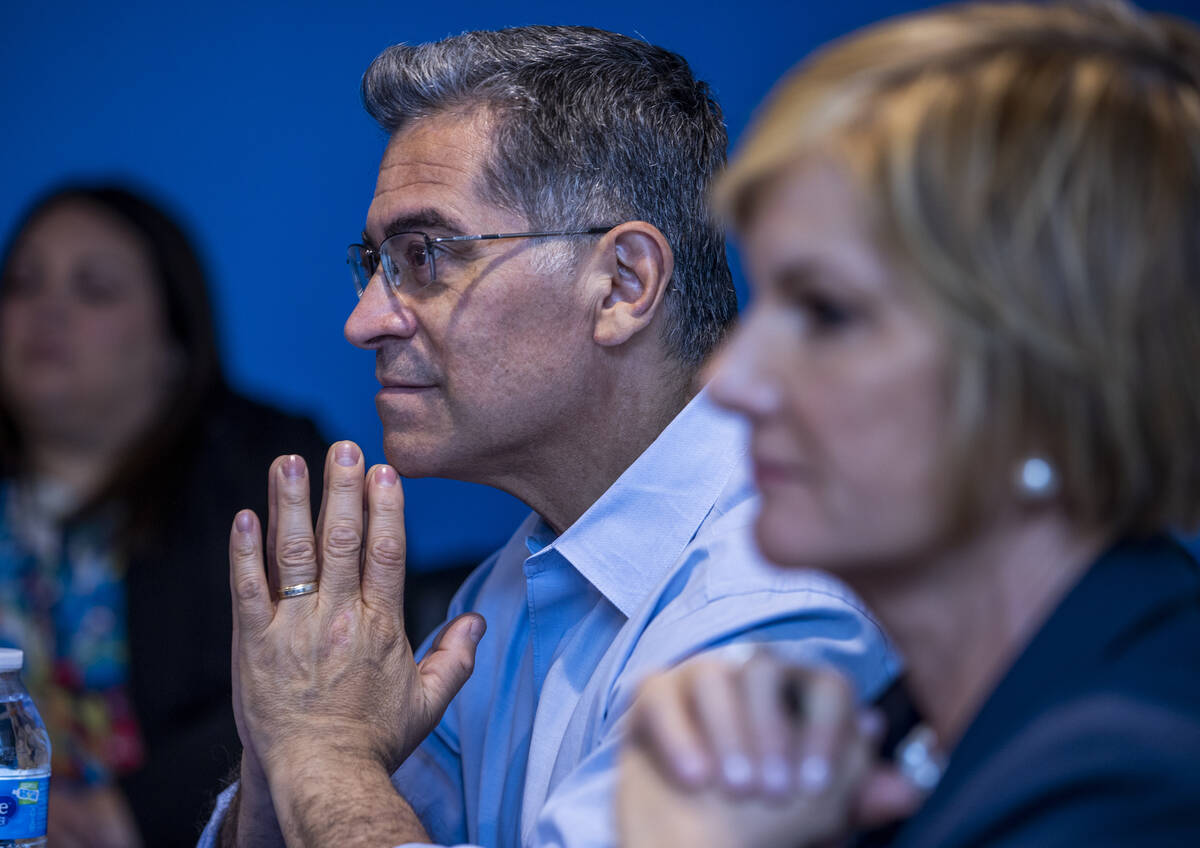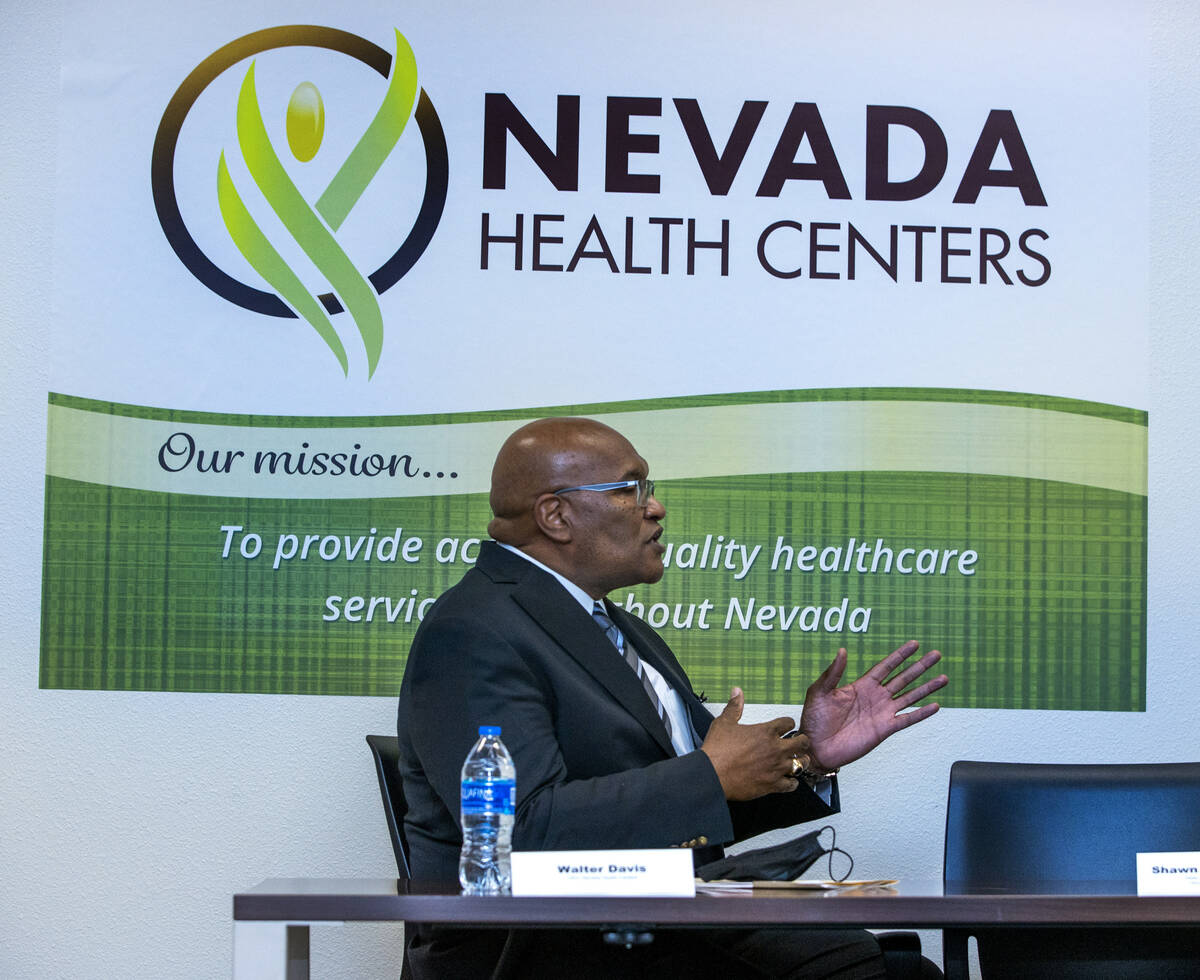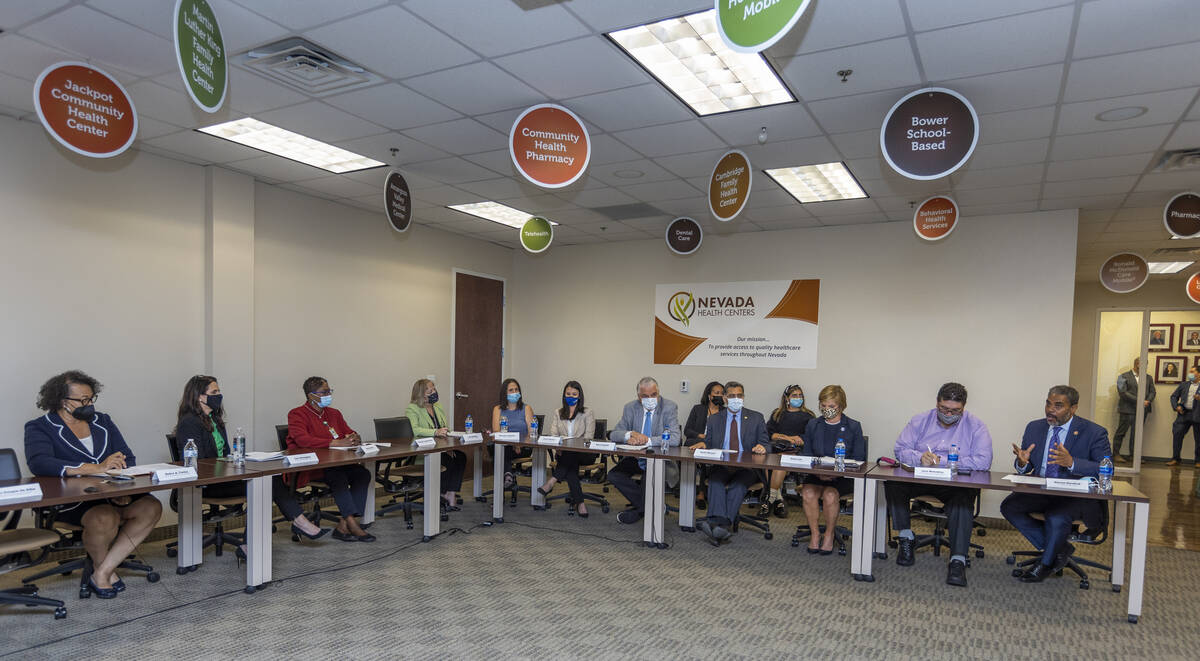Sisolak pledges $20M to open psychatric ERs
Gov. Steve Sisolak and U.S. Health and Human Services Secretary Xavier Becerra on Tuesday pledged millions of federal dollars to help fund psychiatric emergency rooms in Nevada and a three-digit suicide lifeline.
The funding was announced during the governor’s summit for Nevada health care providers, which his office said drew more than 700 participants.
During the summit’s keynote address, the governor pledged $20 million in pandemic American Rescue Plan Act funds to open so-called crisis stabilization centers across the state that will function essentially as psychiatric ERs.
Minutes before, Becerra said at a media briefing that his department was awarding $1 million to Nevada to help the state make the transition to an easy-to-remember three-digit suicide lifeline number from the current 10-digit number. The award is part of nearly $105 million in new funding for the project awarded to states and territories.
The new 988 system is scheduled to go into effect July 16, Becerra said.
The U.S. had one death by suicide every 11 minutes in 2020, according to the U.S. Centers for Disease Control and Prevention. Suicide was the second leading cause of death for those ages 10 to 14 and 25 to 34.
“We know it is hitting our young people the hardest,” and that suicidal thoughts have increased during the pandemic, Becerra told the audience at the Las Vegas Convention Center.
In 2020, Congress designated the new 988 dialing code to be operated through the existing National Suicide Prevention Lifeline.
The 988 system can provide call, text and chat options, said Stephanie Woodard, a top mental health advisor to the state.
‘Warm and welcoming’ setting
The funding for crisis stabilization centers will help to open as many as four to six centers in hospitals across the state, Woodard told the Review-Journal.
“Instead of an individual who’s having a behavioral health crisis going to an emergency room – which is ideal if you’re having a heart attack or you have an acute medical condition – the crisis stabilization centers offer a different front door,” said Woodward, senior adviser on behavioral health to the Nevada Department of Health and Human Services.
The centers will offer what Woodard described as more of a “living room-like setting,” one that is more “warm and welcoming” rather than the clinical environment of a traditional ER.
“If somebody’s having a crisis, the last thing that they want are bright, shiny lights and machines that are beeping,” Woodard said. “That is a very highly stimulating environment for someone, and not the best environment for someone who’s really struggling.”
The goal is to open the centers within a year, she said. There also will be mobile crisis teams that can go to the individual experiencing a mental-health emergency, in place of the police or fire departments.
“If you think of the cascade of care that comes if you call 911, you usually get police fire or rescue, right? This is sort of flipping that, turning it into a behavioral health cascade,” she said, where a call is made to 988, a local crisis team responds, and if the individual needs additional care, is taken to a crisis stabilization center.
Masks, moon shot, mental health
In comments to the media, Becerra said that he respected a federal judge’s ruling Monday that ended the mask mandate on planes and other forms of public transit.
“I respect the ruling but I follow the science,” he said, and urged the public, especially people who are older or immunocompromised, to continue to take precautions to protect themselves.
After speaking at the Nevada Healthcare Provider Summit, Becerra participated in a midafternoon discussion at the Martin Luther King Family Health Center about ways to make cancer screenings more easily accessible to more people. Suggestions included more mobile screenings, similar to the mammovans providing mobile mammograms but providing lung-cancer screening.
The discussion included center and health care leaders, as well as Sisolak and Nevada U.S. Reps. Susie Lee and Steven Horsford.
More than 9.5 million cancer screenings were missed in the U.S. because of the pandemic, according to information from Becerra’s office.
The event was in support of President Joe Biden’s Cancer Moonshot Initiative, aimed at cutting the death rate from cancer in half over the next 25 years.
Becerra said that his department is launching a “Year of Screening and Prevention” focused on engaging communities on the importance of preventive health including cancer screenings, and reducing barriers to screenings.
Later in the afternoon, Becerra continued his National Tour to Strengthen Mental Health at HELP of Southern Nevada, touring the facility and speaking with staff and clients there.
Contact Mary Hynes at mhynes@reviewjournal.com or 702-383-0336. Follow @MaryHynes1 on Twitter. Review-Journal staff member Brett Steidler contributed to this report.



